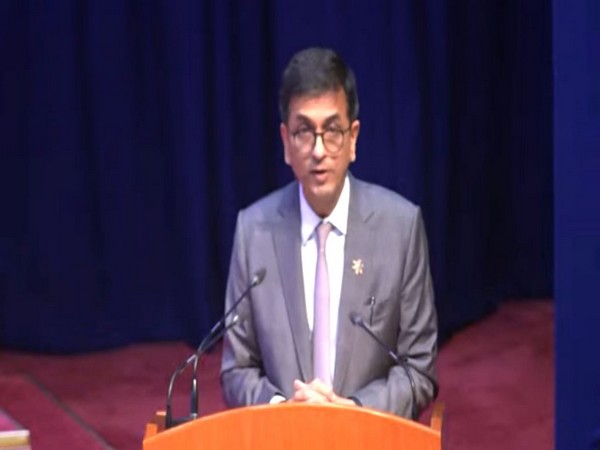Global South has been willing to recognize its unique needs, shift in wealth from 'North Atlantic' to Asia Pacific: CJI Chandrachud
He said several nations in the Global South, including India, have historically been at the receiving end of imperialism or colonial rule

- Country:
- India
Countries in the Global South have been grouped together not only in terms of their economic status but also based on their legal response to their colonial past, Chief Justice of India DY Chandrachud said on Monday and noted that the discourse about human rights and access to justice has been historically monopolized by voices from the Global North, which often makes such dialogue unsuitable for application in other contexts. Speaking at First Regional Conference on 'Access to Legal Aid: Strengthening Access to Justice in the Global South,' Justice DY Chandrachud referred to the economic rise of BRICS economies and said there has been a universal "shift in wealth" from the metaphorical 'North Atlantic' to 'Asia Pacific'.
He said several nations in the Global South, including India, have historically been at the receiving end of imperialism or colonial rule. "This history resulted in a relationship of unequal power, with such nations being forced into the periphery of the world economy. It is for this reason that before academics used the term 'Global South', terms such as 'developing/underdeveloped' and 'third world' had gained wide currency," he said.
"By 2030, it is projected that three of the four largest economies will be from the Global South. The GDP in terms of purchasing power of the Global South-dominated BRICS nations surpasses that of the so-called Global North's G7 club. The reason behind this is that the Global South's willingness to recognize their unique needs and collaborate with each other and this conference serves as a starting point for our nations to expand beyond mere economic and trade alliances and make cooperation between our legal systems a key priority," he added. The CJI said "discourse about human rights and access to justice has been historically monopolized by voices from the Global North", which often makes such dialogue unsuitable for application in other contexts.
"I am certain that this conference will serve as a meaningful point of departure for engagement between India and the sixty-nine other participating countries, with whom we share a close bond and said that the 'Global South' become important points of collaboration. The term is not geographical, but rather it reflects political, geopolitical and economic commonalities between certain nations", he said. "Countries in the Global South have been grouped together not only in terms of their economic status or shared colonial history but also based on their legal response to their colonial past and socio-economic conditions. Our constitutions are a deviation from the language of constitutionalism and justice prevalent among Western Nations," he added.
Citing examples, he said constitutions of several nations in the Global South are cognizant of the existence of indigenous minorities, who have been historically prejudiced, and expressly recognize their rights through special provisions. "Provisions providing for affirmative action in education, public employment, and the legislature for Scheduled Tribes in the Indian Constitution is one such example," the Chief Justice of India said.
India's G20 sherpa and former NITI Aayog chief, Amitabh Kant, who also addressed the gathering, said technology has made the lives of its citizens easier and more efficient. He said that India's G20 Presidency gave an opportunity to engage meaningfully with member countries and learn from experiences as well as showcase India's achievements.
He emphasised ethical and responsible use of Artificial Intelligence and said tools derived from AI can be useful for legal and judicial processes. There is no question of replacing human reasoning, logic and intelligence with automation but there are many aspects of technology that can be used, he said. (ANI)
(This story has not been edited by Devdiscourse staff and is auto-generated from a syndicated feed.)
- READ MORE ON:
- Chandrachud
- Indian
- Global North's
- BRICS nations
- DY Chandrachud
- Artificial Intelligence
- Global South
- Asia Pacific'
- Amitabh Kant
- BRICS
- Constitution
- North Atlantic'
- Asia Pacific
- Global South'
- India
- Western Nations
- NITI Aayog
- First Regional Conference on 'Access to Legal Aid: Strengthening Access to Justice
ALSO READ
Venus Williams Makes Triumphant Return to Indian Wells
India AI Impact Summit 2026: A Triumph for Global AI Collaboration
RBI Governor Optimistic About India's Resilient Economy Amid Global Uncertainties
South Africa Gears Up for T20 World Cup Clash Against India
Boosting Indian Industry: Nitin Nabin Highlights Trade Deals and Budget Impact










